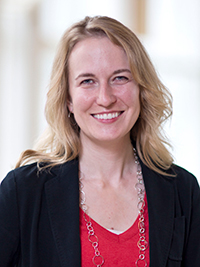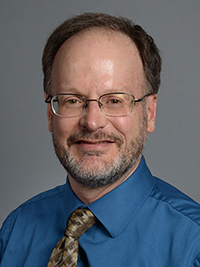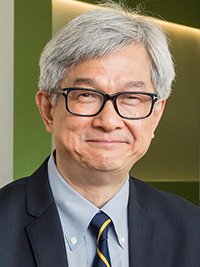The course of the pandemic has placed a considerable spotlight on scientific research and the role our investigators play in fighting diseases in labs and on the front lines. This is nothing new to the Hirshberg Foundation, where funding critical research has been the core of our mission for 23 years. The world is witnessing firsthand the urgency to support science, whether to stop a pandemic or to cure pancreatic cancer. We asked a few of our 2019 Seed Grant recipients to comment how they are adapting in light of the COVID-19 pandemic. Below they share how they’ve been able to continue with their research and the hope they have for future progress. Their passion and dedication is refreshing during such challenging times and we’re proud to share their words with you.
Gina Razidlo, PhD, Mayo Clinic
 “Pancreatic cancer doesn’t stop for a pandemic, and neither do we. Access to our lab was restricted for a few weeks in the spring of 2020, but we were able to use our time working remotely for data analysis, writing, immersing ourselves in our colleagues’ recent publications, and keeping connected via videoconferencing. We were excited to return to the laboratory, with a focus on safety. We feel a sense of responsibility to each other and to the PDAC community to continue to move our research forward in the safest way possible.”
“Pancreatic cancer doesn’t stop for a pandemic, and neither do we. Access to our lab was restricted for a few weeks in the spring of 2020, but we were able to use our time working remotely for data analysis, writing, immersing ourselves in our colleagues’ recent publications, and keeping connected via videoconferencing. We were excited to return to the laboratory, with a focus on safety. We feel a sense of responsibility to each other and to the PDAC community to continue to move our research forward in the safest way possible.”

Steven Van Doren, PhD, University of Missouri
 “The period prior to the lockdown starting March was exciting. We completed the first screen of 72 compounds and found 22 of them to bind the targeted enzyme marker of Pa Ca severity. We returned to our lab in June and a strategic result from my lab developed by July. Two of the 22 compounds block the enzyme maturation assay that we are targeting. This has opened our eyes to potential opportunities to target areas of metastasis. We are moving forward!”
“The period prior to the lockdown starting March was exciting. We completed the first screen of 72 compounds and found 22 of them to bind the targeted enzyme marker of Pa Ca severity. We returned to our lab in June and a strategic result from my lab developed by July. Two of the 22 compounds block the enzyme maturation assay that we are targeting. This has opened our eyes to potential opportunities to target areas of metastasis. We are moving forward!”

David Wong, DMD, DMSc, UCLA
 “Early detection of pancreatic cancer is a holy grail in cancer research. Our project develops a novel liquid biopsy approach to detect mutations in a key cancer gene KRAS in pancreatic cancer. EFIRM is an emerging technology that can detect cancer mutations in plasma and saliva with near 100% concordance with tissue biopsy-based genotyping. As the majority (90%) of pancreatic patients harbored at least one KRAS mutation, the EFIRM technology is translatable for the detection/risk assessment of pancreatic cancer. Integration of the EFIRM Liquid Biopsy assay into pancreatic cancer screening and risk assessment programs will augment and enhance the currently available diagnostic options for pancreatic detection such as computed tomography (CT) and endoscopy.”
“Early detection of pancreatic cancer is a holy grail in cancer research. Our project develops a novel liquid biopsy approach to detect mutations in a key cancer gene KRAS in pancreatic cancer. EFIRM is an emerging technology that can detect cancer mutations in plasma and saliva with near 100% concordance with tissue biopsy-based genotyping. As the majority (90%) of pancreatic patients harbored at least one KRAS mutation, the EFIRM technology is translatable for the detection/risk assessment of pancreatic cancer. Integration of the EFIRM Liquid Biopsy assay into pancreatic cancer screening and risk assessment programs will augment and enhance the currently available diagnostic options for pancreatic detection such as computed tomography (CT) and endoscopy.”

The Foundation first funded Dr. David Wong’s electric field-induced release and measurement (EFIRM) project as part of our 2018 Seed Grant cycle. Dr. Wong’s research into a liquid biopsy has been termed the “saliva test” and is currently part of several clinical studies, including a rapid response test for both active COVID-19 infections and the virus’ antibodies.